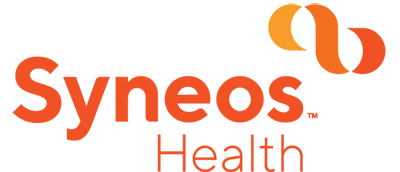How Should Healthcare Make Use of AI? Ask the Patient
A new survey shows patients want doctors involved in AI-linked decisions
Executive Summary
Technology, human ingenuity and deep pools of financial capital are aligned in an important mission: bringing artificial intelligence (AI) to global healthcare. If investor enthusiasm is any gauge, the mission is advancing quickly. No fewer than 300 healthcare AI startups have closed funding deals in the last five years—nearly 45 percent of them first equity rounds by startups just entering the space.1
In several respects, however, the mission is generating too much heat and too little natural intelligence. Technological assets on AI’s frontier are often over billed in the media and poorly validated. Our regulatory and legal frameworks aren’t prepared for AI’s impact. Most importantly, companies trying to reinvent medical practice haven’t devoted enough resources to asking patients what they want from healthcare AI.

With a new patient survey of about 800 European and American patients and 200 caregivers, Syneos Health hopes to address this deficit and shift the conversation from what AI means for healthcare providers, product companies and investors to what AI should do for patients. Responding to our wide-ranging questions, large majorities of patients told us they have certain fears about AI’s future prominence, and that they want physicians to oversee the development and use of healthcare AI applications.
Patient Power
Having spent most of the past three and a half years in technology development and communications around healthcare AI, and more than a decade in healthcare tech, I believe our survey results (http://bit.ly/InVivoAI) carry an important message about where the “empowered patient” movement may be heading. In the past few years, this movement has begun to disintermediate physicians and professional organizations in some healthcare settings. The sentiments patients expressed in our survey may suggest a pendulum swing in the other direction.
Before turning to the survey results, I’d like to explain the shift in more detail. Prior to the very recent spike in the public’s fascination with AI, the rise of “patient power” in tandem with internet ubiquity created a potent disruptive force in healthcare. Tech-savvy consumers were showing up at the doctor’s office with detailed information on their health complaints, culled from respected websites like the American Cancer Society, the Mayo Clinic and MedPage Today.
Many were also keeping track of their vital signs, thanks to a dazzling array of personal health devices and apps. These patients were calling their own shots on how, when, and where they receive medical attention—in the process, shifting “point-of-care” to wherever the patient happened to be sitting.
The ripple effects of patient power were swift and consequential, eroding paternalistic attitudes among researchers, practitioners, and medical organizations. The term “patient-centricity” is on the lips of every provider and product supplier because patients placed it there.
The retreat from paternalism sounded a clarion call to outsiders with an eye on the $3.3 trillion2 U.S. healthcare market. Patient power encouraged Alphabet, Google’s parent company, to spawn dozens of health initiatives.3 It may also help explain why Amazon.com is testing its Alexa systems in clinical settings such as diabetes4 care, while snapping up retail pharmacy licenses in multiple states.5 Apple similarly seized on the patient power movement, combining its consumer device platform with health-related software and data services. This allowed empowered consumers to participate directly in clinical research and take charge of clinical care delivery.6
I doubt these companies would make forays on such a scale if patients hadn’t broadcast their desire to overturn the status quo. Certainly, investors would be more wary about backing risky startups in this space without such strong signals from consumers.
Course Correction
Yet, what our patient survey seems to show is that the advent of healthcare AI has once again shifted the balance of power. The arrival of powerful new technology in the healthcare space triggers, in equal measure, enthusiasm for change and apprehension about risks. In the end, patients told us, they don’t wish to see this transformation proceed without the close supervision of medical authorities they trust.
Does this mean vive le status quo? Not at all. Patient power will continue, cross-sector innovation and investment will grow, and disruption from the likes of Google, Amazon and Apple will continue on the current course. Nevertheless, our survey, titled Artificial Intelligence for Authentic Engagement, reveals that there are powerful, new propulsive elements in consumer sentiment—a course correction that providers, technology developers, and their investors would do well to consider.
The lesson could not be more clear: If the tech moguls and financiers pulling the levers behind healthcare AI insist on taking a “we know best” stance, they will simply resurrect paternalism and earn the ire of empowered patients who, in fact, have unquestionable rights as AI co-creators.
From our survey responses, we learned that patient excitement about healthcare AI doesn’t match that of investors. The largest cohort of respondents—44 percent in the EU and 37 percent inthe U.S.— were only “somewhat excited,” while fewer than one-fifth in total described themselves as “very excited.” On the flip side, 42 percent of Europeans and half of the U.S. cohort said they were “somewhat concerned” about current AI healthcare trends. Nearly one-quarter of American respondents said they were “very concerned,” as did 15 percent of Europeans.
Who Do You Trust?
In terms of the course correction I described above, the most telling survey response was to our question about which groups or organizations could be trusted to develop an AI-powered “virtual nurse assistant.” Should doctors or hospitals play a role? What about insurance companies, drug manufacturers or technology giants? Presented with this choice, the largest cohort of patients (56 percent) said they would trust their doctors. Hospitals came in second at 42 percent, while technology and biopharmaceutical companies trailed far behind.
There are many other takeaways from the survey that may surprise product developers. In recent years, proposals for robot “companions” for the elderly have soaked up much research funding and venture capital. Yet, in our survey, only three percent of respondents over the age of 65 identified “companionship” as a benefit.
The survey results tell me healthcare communicators who believe in AI’s positive potential—myself included—have our work cut out for us. To soothe consumer anxieties about the technology, we must first educate patients and providers on the role AI already plays in trusted applications, such as Alexa, Siri and Google Now.
We must also explain more effectively that the status quo in care management is far from ideal. Asked about their concerns regarding virtual nurse assistants, 60 percent of respondents said they worried about machine errors causing harm. I wonder how many respondents realize that human error by care providers accounts for 10 percent of all U.S. deaths.7 Medical error—little of it involving AI—is the third highest cause of death in the U.S., studies show.
Far too many trends in life-altering technology are driven by vendors and inflated by surfeits of media hot air. AI is no exception. The fanfare may be benign in most areas of consumer tech, where vendors praising the latest gadget hurt no one but well-warned investors. In healthcare, best practice in every case is asking empowered consumers what they want, and humbly bringing their desires to the drawing board.
About the Author

AJ Triano is a SVP leading Engagement Strategy for GSW, a Syneos Health company. His 15-year career in healthcare technology and communications, includes a track record of strategic multichannel guidance and innovative technology pilots in healthcare. AJ spent the last two-and-a-half-years working closely with Apple and major academic research institutions and hospital systems to deliver mClincal research using Apple’s ResearchKit and remote care programs using Apple’s CareKit frameworks. Innovative digital research and complementary service mHealth programs he helped bring to market are fundamentally changing the way healthcare is both researched and delivered in real time.
References
[1] https://www.cbinsights.com/research/healthcare-ai-startup-boomexpert-research/
[2] https://www.healthaffairs.org/doi/full/10.1377/hlthaff.2017.1299
[3] https://www.cnbc.com/2017/04/18/alphabet-health-tech-influencesilicon-valley.html
